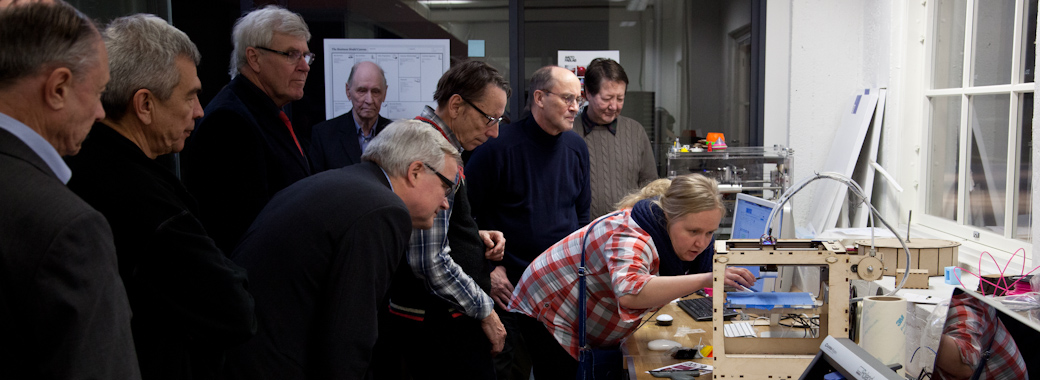

Monthly Archives: December 2009
Median murros study assignment video 2009 – Media in the year 2020
Median murros kurssin harjoitustyö vuodelta 2009. Media in transition course assignment.
Median murros study assignment video 2009 – Media 2020
Median murros study assignment video 2009 – No credit
Median murros study assignment video 2009 – TV-shop 2020
Median murros harjoitusvideo 2009 – Absurd fantasy
Happy holidays!
Some Remarks on Twitter
From a researcher’s perspective, there isn’t a better way to keep in touch with what’s going on “right now” in the world than Twitter. It is a medium that allows consumers to create small utterances about their daily lives and thus serves as a never-ending survey data feed for a myriad of different research questions. For example, search for any brand name on Twitter and you will get a whole variety of “tweets” from gushing fandom to service disappointments (something that companies are struggling to get feedback or data on). Twitter (along with Facebook) is quietly transforming how businesses interact with consumers. From a researcher’s perspective, it’s both an invaluable tool and a very interesting research subject in itself.
But amongst all the hype surrounding Twitter, we seem to forget that no new technology is neutral, nor are all technology exclusively positive in their effects. If Marshall McLuhan has taught us anything, it’s that studying the medium itself is more interesting than its content. Media are never “just” technologies; they are also social and cultural systems with their in-built codes, idioms and practices. Right now it seems that Twitter is having an effect on society at large, redefining how we evaluate information and even how we read the news, among others.
For example, take what sports journalist Bill Simmons had this to say about Twitter and how it’s affecting his profession:
What’s the biggest story the media has missed this year?
The potential of Twitter. Old-school media doesn’t get Twitter at all. A lot of people still think it’s a fad and it’s totally not a fad. […] Now reporters are posting scoops on Twitter before they send the finished stories into their employers. People are not seeing what is happening here. Facebook is a social network; Twitter is a media/marketing vehicle disguised as a social network. Continue reading
Seeing Red symposiums in January
The Seeing Red symposium and workshop will be held on January 12th, 14th, 19th, and 21st at Aalto University School of Art and Design (former TAIK), Hämeentie 135 C, Helsinki, Finland. Researchers, doctoral students, and MA students working on thesis: Welcome!
Program: http://vipp.mlog.taik.fi/
Digital Visuality seminar
Welcome to the Media Factory seminar:
Digital Visuality – The multiple societal uses of images
17.12.2009
13.00-17.00
TKK, TUAS, TU 5
The seminar has as its aim to discuss and develop further the new Media Factory Research Track called “Digital Visuality” that is still in the plannig phase. In other words, it is a good opportunity to get involved.
Whenever we make use of images we encounter them embedded in pre-established settings. We are informed about their possible functions, and the images themselves are formatted for use. Formatting is here understood in a wide sense including various technical operations concerning accessibility, distribution and quality of images as well as design, metadata and discourses that contribute to embedding the images in functional contexts. In this sense we can speak of “formatted images” that inform us about their possible uses, interpretations and meanings they convey.
During the first steps of developing the track we recognized that our ways of thinking of images differ fundamentally. Alone the distinction image/picture opens up debates that cannot easily be settled. Against this background, we think that “formatted images that inform us” can be a useful notion in approximating the common denominator of the various research projects making up the planned research track “Digital Visuality”.
The notions of “informing” and “formatting” allow us to focus on the various aspects of embedding the images into various contexts. Consequently, the image (or picture) “itself” appears as an effect of these operations.
From this starting point “Digital Visuality” research track that we are now developing intends to investigate the multiple uses of images and pictures in contemporary society. The field of intended research can be presented in terms of five domains that will be renegotiated with future track partners:
1. Managing pictures, images and visual assets.
2. Creating new visual orders
3. Visual identities
4. Cultural agency of pictures
5. Extending the limits of performance
Programme:
13.00 Introdution: TKK: Pirkko Oittinen
13.15 Taneli Eskola: Research on images in Taik
13.35 Henri Weijo & Saara Könkkölä: Research on images in HSE
13.55 Pirkko Oittinen: Research on images in TKK
14.15 Coffee
14.40 Asko Lehmuskallio: Challenge – Bildwissenschaft
15.00 Panel discussion
17.00 Closure